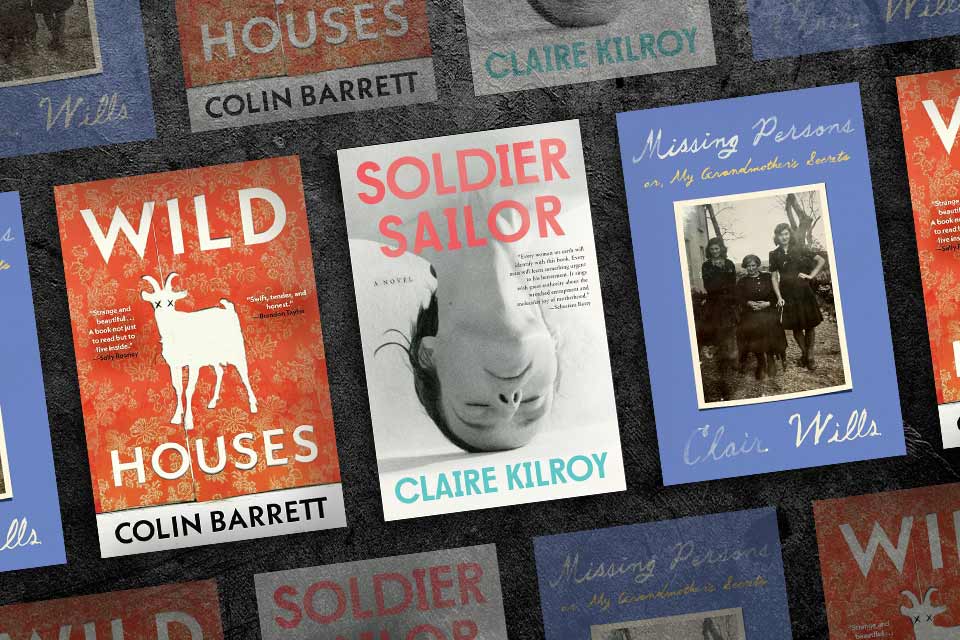Irish Books to Move Us
 I’m worried for us. Humanity is on a collision course with annihilation, and most people don’t seem terribly bothered. Granted, we’re a species hardwired to survive and don’t like to look at our demise, but overwhelmingly our ongoing malaise isn’t solely denial. We are increasingly riddled with a chilling lack of empathy even as we witness dystopian levels of rage, hate, terror, and tyranny worldwide. Books won’t thaw or save us, not as a whole, but they can profoundly affect individuals.
I’m worried for us. Humanity is on a collision course with annihilation, and most people don’t seem terribly bothered. Granted, we’re a species hardwired to survive and don’t like to look at our demise, but overwhelmingly our ongoing malaise isn’t solely denial. We are increasingly riddled with a chilling lack of empathy even as we witness dystopian levels of rage, hate, terror, and tyranny worldwide. Books won’t thaw or save us, not as a whole, but they can profoundly affect individuals.
For decades reading has rescued me—from boredom, loneliness, depression, inertia, bias, ignorance, and an overall smallness of mind and heart. I turn toward books like a bud to the sun, and during the best of reads I am enveloped in a haze of interconnectedness. The following recent books, centered in Ireland, connect us so fully to story, place, and character, they illuminate how the specific is universal. Each of us is all of us. In this way, these three titles have the potential to nurture empathy and infuse our disintegrating existence with the power and medicine of compassion.
Colin Barrett
Wild Houses
Grove, 2024
In Colin Barrett’s debut novel, Wild Houses, there’s the uncanny sense that this visceral story of misfit characters could only take place in small-town rural Ireland and that this suspenseful, gritty plot and these hardened, marginalized people could exist anywhere. This tightly wound tale told in superb prose is set over the compact course of a single weekend. Doll, the teen brother of a petty drug dealer, is kidnapped, and time is running out for his girlfriend and family to secure his ransom. Barrett is exceptional in how he humanizes the novel’s hostage and his kidnappers, and the work’s wider cast of criminals and the misguided and demented. But it is grieving, introspective loner Dev—Wild Houses’ protagonist and reluctant, anxious host to kidnapped Doll and his two captors—who has the greatest capacity to turn readers tender and make us care about one another in our too often apathetic world.
Clair Wills
Missing Persons: or, My Grandmother’s Secrets
Farrar, Straus and Giroux, 2024
From exacting historian and astute cultural critic Clair Wills, Missing Persons is both an intimate exploration of family secrets and a broader examination of Ireland’s dark history of horrific state-sanctioned and church-run orphanages, industrial schools, workhouses, Magdalene laundries, and so-called Mother and Baby Homes. Wills’s focus is on the latter two institutions, which specifically erased unmarried mothers and forcibly placed their babies for adoption. This hybrid of memoir, history, and investigative journalism is achingly braided together. A hard-earned weaving that is less about recrimination and very much about the reclamation of Wills’s secret cousin, Mary, and, more generally, a centering of the 110,000-plus casualties of a church and state that weaponized shame and supposed sin to control and oppress women. The book’s central themes of tragic loss, appalling cruelty, intergenerational trauma, repeating familial patterns, and the unfathomable collusion of family, church, and state are brilliantly employed to serve Kafka’s requisite test of literature: that a book be the ax that breaks the frozen sea inside us.
Claire Kilroy
Soldier Sailor
Scribner, 2024
We’re most likely to care about the plight of likable, relatable characters—an impulse Claire Kilroy writes against in her startling fifth novel, Soldier Sailor, wherein she casts a highly problematic central character. In a novel structured as a mother’s retrospective confession to her son, the unnamed narrator recounts a series of shocking actions and harrowing events during the boy’s early years, and in particular his first months. An unreserved and blazingly honest chronicle, the book defies society’s stringent expectations of early motherhood and its idealization of postnatal bonds. On graphic display is a mother’s monotony, exhaustion, regret, depression, dysfunction, rage, and hollowing out. Harried states of depletion and erased identity exist alongside the overarching fierceness of this shell-shocked mother’s love for her child. While I admire Kilroy’s writing and incisive depictions, I didn’t like the novel’s wildly contradictory protagonist and her emotionally impotent husband. But oh, how I was affected by this all-too-real portrait of debilitating, love-laced motherhood.











